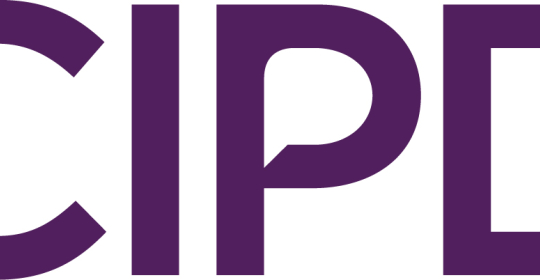New data released today by matching and hiring platform Indeed, reveals that the UK leads the way in salary transparency, as 71% of job adverts list salary information, compared to just 50% in France and 16% in Germany.
The data—taken from Indeed’s job listings—is released alongside new research from 6,000 Europeans polled across the UK, Ireland, France, Germany, Italy and The Netherlands. It found that on average 59% of European jobseekers believe salary ranges should be included in job descriptions.
The jobseeker perspective: a disconnect between expectations and reality
Indeed’s research also found that nearly two-thirds (61%) of jobseekers in the European countries surveyed want to see not just a salary range but additional benefits such as annual leave (54%), bonuses (48%), and healthcare (38%) in job adverts. However, when asked by potential employers about their previous salary, 41% of European jobseekers admitted they didn’t tell the truth, with 28% inflating their past earnings.
Salary transparency variation across Europe
Indeed Hiring Lab data highlights significant differences in salary transparency across European job markets:
|
Salary transparency in 2024 across UK and Europe |
|
|
Country |
% of jobs with salary transparency |
|
UK |
71% |
|
France |
50% |
|
Netherlands |
45% |
|
Ireland |
41% |
|
Italy |
20% |
|
Germany |
16% |
Salary transparency in the UK has increased by 49% since 2019
The UK has long been a frontrunner in salary transparency. Indeed’s proprietary data shows a steady upward trend, with the annual average percentage of UK job postings including salary details rising from 47.7% in 2019, to 71% in 2024. This shift reflects growing demand from jobseekers for greater pay clarity, and a broader movement towards transparency in hiring.
|
Salary transparency in the UK over time |
|
|
Year |
% of jobs with salary transparency |
|
2019 |
47.8 |
|
2020 |
55.6 |
|
2021 |
60.2 |
|
2022 |
64.6 |
|
2023 |
69.8 |
|
2024 |
70.8 |
Salary transparency in the workplace
Salary transparency doesn’t just impact job listings, it also varies significantly within workplaces. Indeed’s research reveals that:
- Fewer than a third (28%) of European employees report full salary transparency in their workplace, while 37% experience partial transparency, such as disclosure of salary brackets.
- Nearly a third (31%) say there is no transparency at all within their organisation.
- UK businesses lead Europe in sharing internal salary brackets, with 34% of employees stating they know what their colleagues earn, compared to just 22% in the Netherlands.
- But when it comes to discussing it, British and Irish workers are the least likely to openly share their salaries with colleagues (18% and 16% respectively), whereas French workers are the most forthcoming, with 36% willing to disclose earnings without hesitation.
Industry differences in salary transparency
While the UK may be the most transparent overall, Indeed Hiring Lab data highlights significant variations between industries. Personal care and home health roles top the list for salary disclosure, while insurance jobs rank the lowest.
|
The UK’s most transparent industries in December 2024 |
The UK’s least transparent industries in December 2024 |
||
|---|---|---|---|
|
% of job listings with salary transparency |
Sector |
% of job listings with salary transparency |
Sector |
|
95.4% |
Personal Care & Home Health |
27.8% |
Insurance |
|
91.7% |
Cleaning & Sanitation |
31.1% |
Civil Engineering |
|
91% |
Nursing |
31.4% |
Mathematics |
|
89.4% |
Childcare |
31.8% |
Industrial Engineering |
|
85.3% |
Therapy |
34.1% |
Software Development |
|
85% |
Education & Instruction |
34.2% |
Banking & Finance |
|
84.2% |
Security & Public Safety |
36.8% |
Information Design & Documentation |
|
84% |
Driving |
38.8% |
Project Management |
|
82.5% |
Medical Information |
41.4% |
Electrical Engineering |
|
82.3% |
Physicians & Surgeons |
45.8% |
Arts & Entertainment |
Why salary transparency matters
The rise of salary transparency is shaping the future of recruitment across Europe. The new EU Pay Transparency Directive will come into force in 2026, and although not directly applicable to the UK, may still influence recruitment transparency practices and norms here. Employers who provide clear salary information not only build trust with candidates but also save time by creating clear expectations from the outset.
Jack Kennedy, Senior Economist at Indeed, says: “The UK is leading the way in salary transparency, with jobseekers increasingly expecting clear pay information upfront. It’s not just a nice-to-have; it’s a key driver in attracting talent and building trust in the hiring process.”
Kennedy continues: “Greater transparency fosters trust, reduces inefficiencies in hiring, and ultimately helps support a healthier labour market that drives productivity and economic growth. As we navigate ongoing economic headwinds, employers who prioritise transparency will be better placed to compete and contribute to a healthier economy overall.”
As salary transparency becomes an increasingly important issue for jobseekers and employers alike, Indeed continues to champion openness in hiring. It offers tools - such as Indeed Profile - that empower jobseekers to set salary expectations from the outset. This helps them match with employers who offer roles within their range, saving time and ensuring both parties are aligned from the start.







